In a world filled with constant motion and distractions, it’s easy to get caught up in the rush and make decisions without fully considering their consequences.
However, beneath the surface of our actions lies a profound truth: every choice we make holds the power to shape our lives and the world around us. It is in the realm of thoughtful action that we unlock our potential for personal growth, foster meaningful relationships, and create a ripple effect of positive change.
The power of thoughtful action lies not only in the choices we make but also in the intention and consideration we bring to each decision. By pausing to reflect on the impact of our actions, we embark on a transformative journey that aligns our values, promotes personal responsibility, and cultivates a more conscious and compassionate existence.
Lesson nine explores the boundless possibilities that unfold when we embrace the power of thoughtful action and harness it as a force for meaningful transformation.
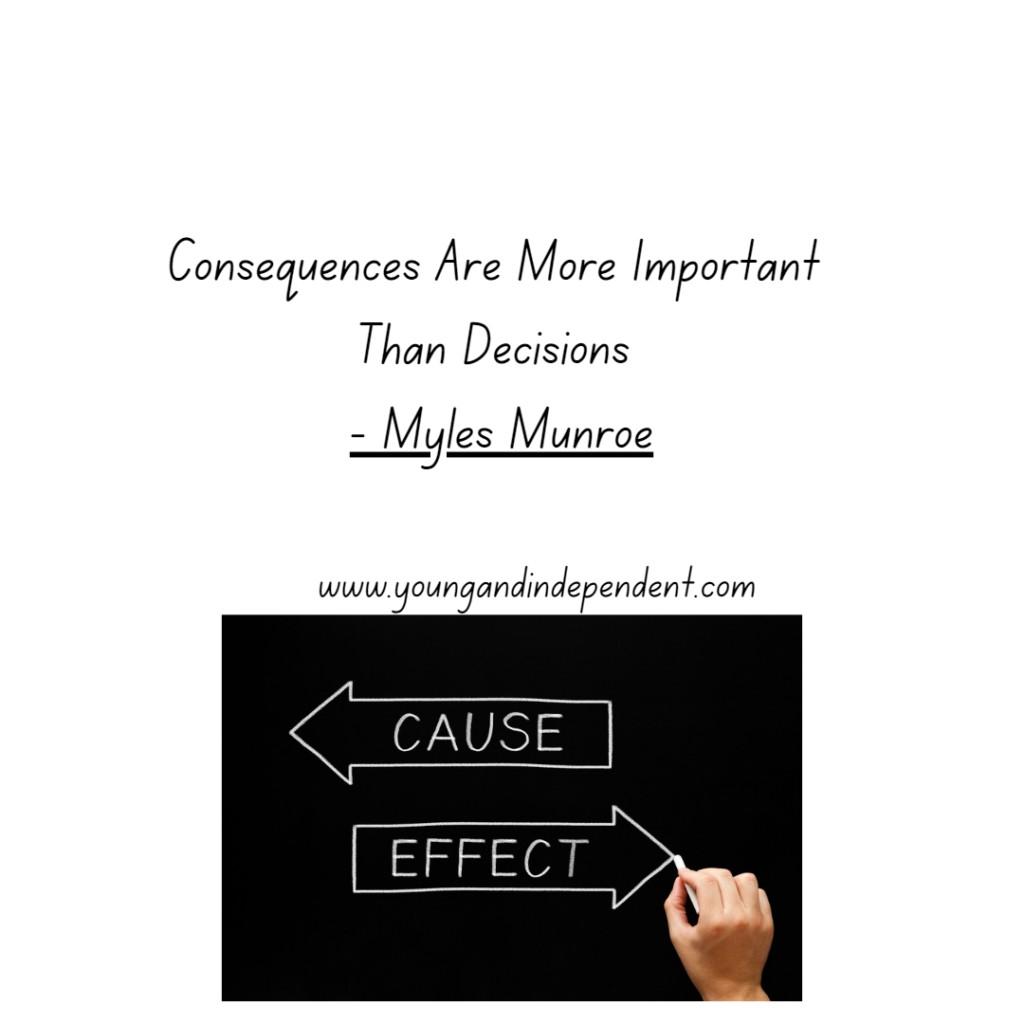
Story Time
I wish I had come across J.E.B. Spredemann’s quote about choices before I made the decision that ultimately led to many painful lessons.
“Choices made, whether bad or good, follow you forever and affect everyone in their path one way or another.”
In July of 2018, I travelled back home to Cameroon to have my second child. I was 7 months pregnant with some complications and really wanted to be close to family where I could get some much-needed physical and emotional support.
While in Cameroon, instead of focusing on my health and my baby’s, my forever-thinking entrepreneurial mind spotted a business opportunity that could be beneficial for my mom, who, although a qualified nurse, was at home jobless.
I’d been supporting my mom financially to the best of my abilities, and at this point I felt that the right thing to do would be to create a business for her—give her a fish pond and teach her how to catch her own fish.
I was going to use a part of the family compound that was underutilised to launch this 15-seat restaurant for Mom. And the rationale behind my choice of business and location was that:
- Mom loved cooking, and she was a great cook.
- It would be easy for her to manage her activities, given that her new business premises were on the extension of her house.
- It would eliminate the biggest cost for the business—rents.
- My siblings could easily help her out in the kitchen or the restaurant.
After discussing the project with my mom and siblings, I decided to kick off with the structural changes to the venue. A lot of risks were taken to alter the existing structure, and that did not come cheap. But being the person with the vision, I was determined to make it work.

The structural work was done; it was time to equip the space. I worked on the branding and ordered personalised stickers from neighbouring Nigeria. I even designed the tables that would best optimise the size of the room we were working with.
After a few weeks of hard work, the restaurant was finally ready to serve delicious meals from Mom’s kitchen.
I was also a new mom with a two-month-old baby while all this was going on, so you can imagine how much of me went into the entire project instead of just enjoying my maternity leave. It was important for this to work!
There was a lot of running around involved and some dangerous incidents, like when my friend Paul’s pickup truck got stuck in the mud late at night in a dark and lonely neighbourhood where we went to pick up a freezer from a Facebook marketplace seller.. Crazyyyy and long Night, with my new-born baby at home.
Anyway, everything eventually came together, and we organised a launch date in November of 2018, and it was very successful. Friends, family, and even passersby came by to celebrate the initiative. Mom was now a proud business owner, and the restaurant was even named after her.
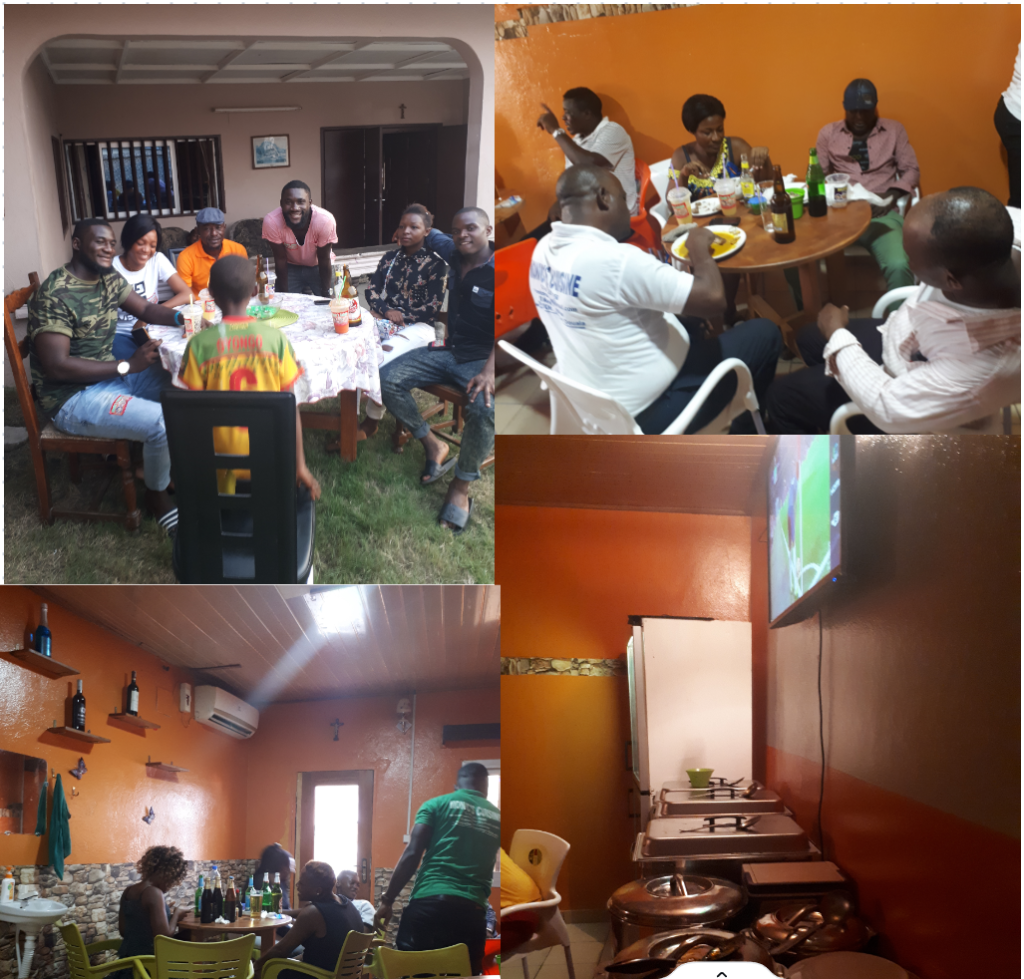
Launch day of Monic’s Cuisine
She invited the priests from the Catholic church near the house to bless the venue, and she seemed all excited about her new venture.
Kuden was born in September, and I was due to head to England in January for my MBA. It was agreed that I’d leave him behind with my mom and his full-time babysitter and visit them as soon as I had a break from school.
After the launch in November, I worked full time in the restaurant for the month of December, and we made a substantial turnover. The prospects were looking good. My special dish was Chinese fried rice, and mom’s forte was traditional meals like “achu” and “kati kati”.
My “uncle”, who had been running his own small restaurant in another city, visited during that period. He told me how badly things had gotten for him due to the Anglophone crisis; his restaurant business was going to shut down, and he didn’t even know what to do.
I discussed it with mom, and we decided to offer him a role at the restaurant as a chef, and he was going to report to mom. We gave him accommodation, and he didn’t have to pay any bills. All he had to do was collaborate with Mom to make the restaurant work.
Before I left for England, I got the chance to work with him for a few days, and everything seemed fine. I was confident that I had done something great and invested $7000 into an initiative that would be very beneficial for my mom and my family, and when my time came to leave, I left without hesitation.
After I left, I was busy with my school, and I trusted that My mom was holding everything down and managing her new business well. However, a month later, I started receiving complaints through text messages and phone calls from my siblings. They were concerned about the new Chef’s behaviour, which was putting customers off and getting under my mom’s skin.
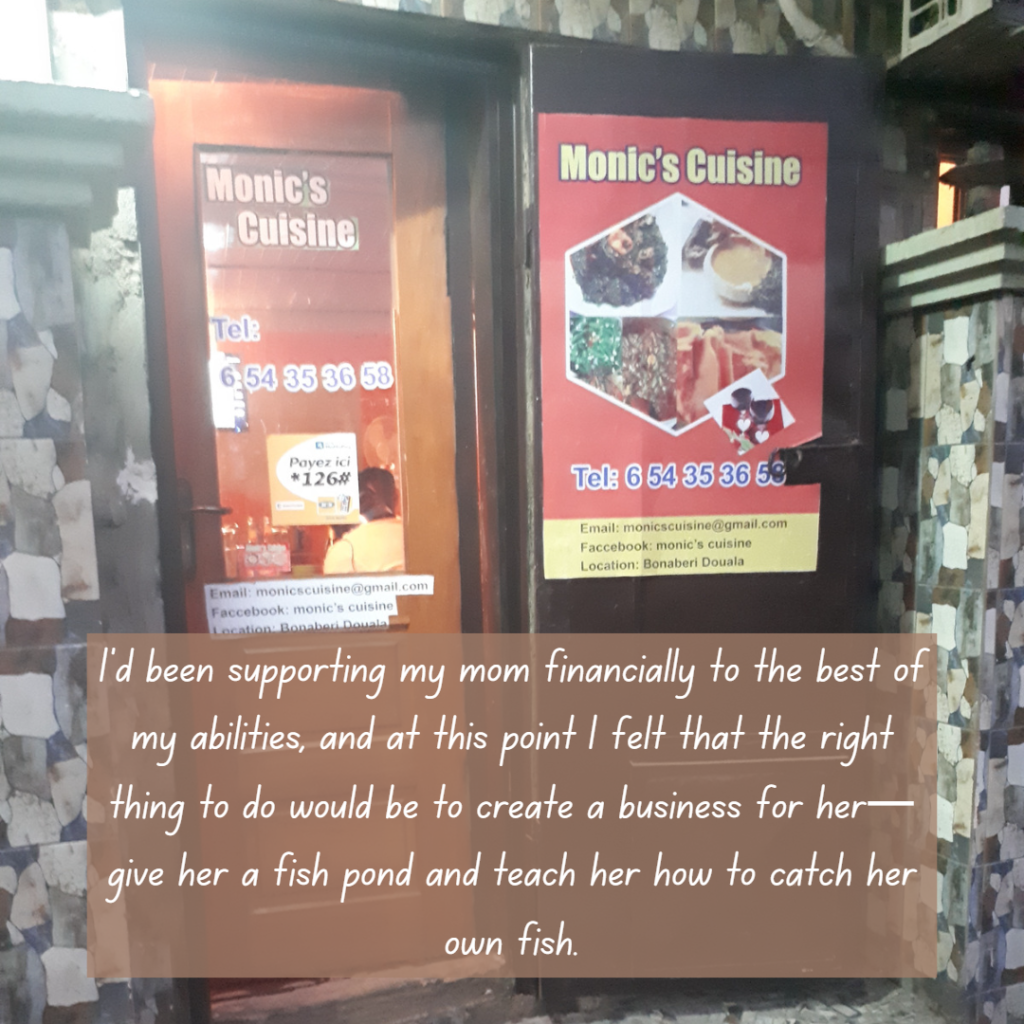
A business that was meant for good was now giving me a lot of headaches and getting me worked up. My siblings also told me that mom was locking up the restaurant for many hours in order to prioritise her church activities.
After many back and forths, I fired the chef and tasked my brother to work with mom to ensure the success of this initiative, which they all agreed to. I had spent my hard-earned money to make this vision come to life, and I was already feeling let down by their actions.
Mom and my brother were now in charge, and I was really hoping for the best; however, another disappointment happened. My brother informed me that he was dropping the ball as well because, in his opinion, working with mom was more difficult than he thought.
And with mom being gone for her church activities, who was then left to manage the business? Why had I not thought about the consequences that such a project would have, especially when family is involved?
Why had I not taken a moment to think about the fact that although my mom’s a hardworking woman, she’s most passionate about saving lives and building a relationship with God, not running a business?
Why didn’t I think about the fact that when people don’t have skin in the game, they are likely to be passive about a venture that they’re not financially, emotionally, mentally, or even physically invested in?
Why did I not think about the fact that the excitement I had about the prospects of the business being a financial relief for mom was all my vision and not hers?
And to make matters worse, while I was thinking of ways to save my investment, my big brother gave me an ultimatum: if his girlfriend isn’t allowed to run the restaurant, he wants it out of that location.
The back story of that ultimatum is this: Before the restaurant was installed in that part of the house, he was the occupant. He’d travelled abroad and was happy for the space to be used for the project.
So when the management became turbulent, I got a proposal from a close friend to the family. Kingsley wanted to run the business and share the profits with mom, and to dad, my brother’s response was over his dead body! Either his girl, who wasn’t on good terms with neither mom nor myself, ran the business, or he wanted his living space back!
More like, I don’t care about all the hours you put into this project, the hard-earned cash you spent, and above all, the purpose for all the sacrifices myself and all those who worked towards the success of project had made.
That spur-of-the-moment decision, which was mainly led by my entrepreneurial instinct and desire to do something good, ended up costing me money and causing a big family rift.
If I could turn back the hands of time, I would happily keep my money and mind my business.
“If, before every action, we were to begin by weighing up the consequences, thinking about them in earnest, first the immediate consequences, then the probable, then the possible, then the imaginable ones, we should never move beyond the point where our first thought brought us to a halt.” Jose Saramago
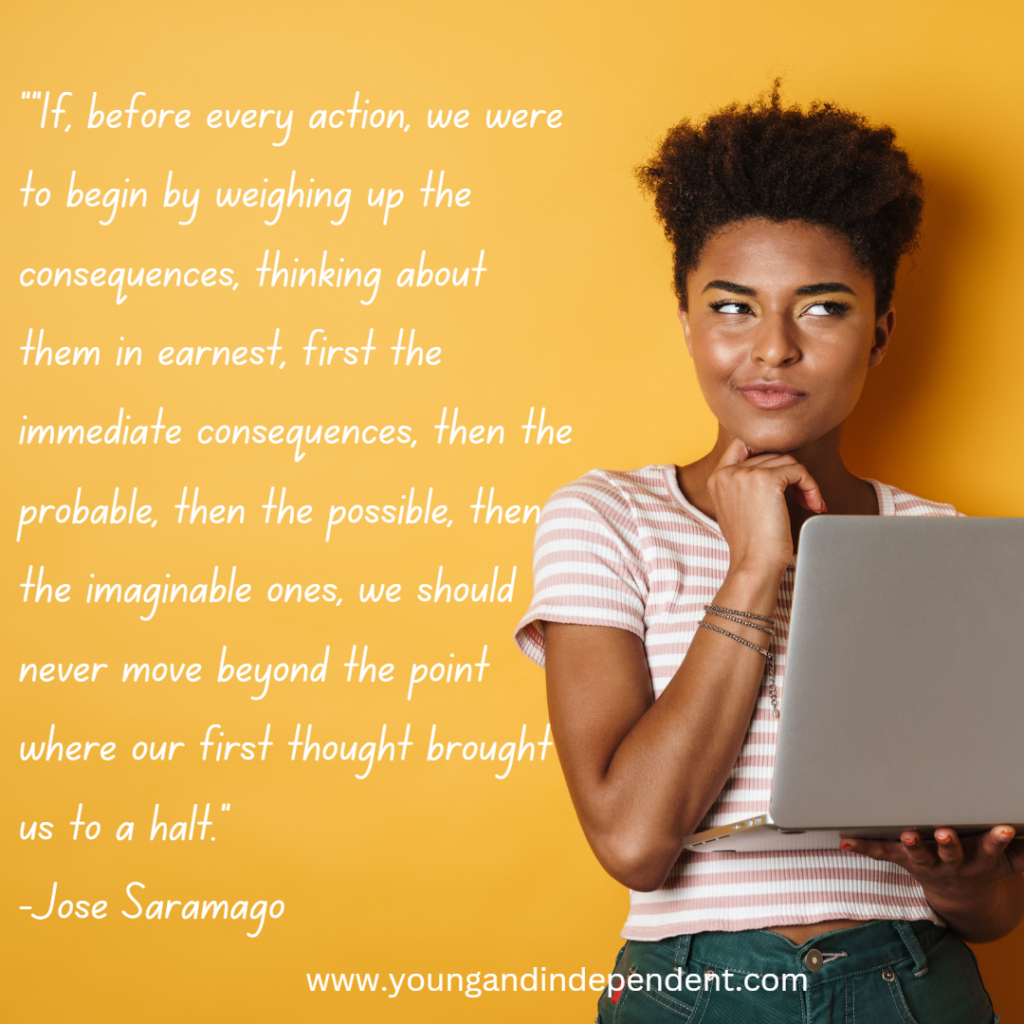
The Power of Thoughtful Action
Here are my six reasons why you should consider the consequences of your actions before you make the decision to act.
1.Understanding Cause and Effect
Every action we take sets a series of events in motion. It is important to recognise that our choices have consequences, both for ourselves and for those around us. By taking a moment to consider the potential outcomes, we gain a deeper understanding of the cause-and-effect relationship and can make more informed decisions.
2. Personal Growth and Responsibility
Thoughtful action cultivates personal growth and accountability. When we consciously evaluate the consequences of our actions, we develop a sense of responsibility for our choices. This mindset empowers us to take ownership of our lives, fostering personal development and learning from both positive and negative outcomes.
3. Nurturing Relationships
Our actions have a profound impact on our relationships. By considering the consequences of our words and deeds, we can nurture positive connections with others. Thoughtful actions promote empathy, respect, and understanding, fostering healthier and more fulfilling relationships in both personal and professional spheres.
4. Aligning with Values
Actions that align with our values and principles lead to a greater sense of fulfilment and purpose. Before taking action, it is essential to reflect on whether the intended outcome aligns with our core beliefs. By planting seeds that are in harmony with our values, we set ourselves up for personal satisfaction and a stronger sense of integrity.
5. Preventing Regret
Regret often stems from impulsive actions or decisions made without careful consideration. By pausing to think about the consequences, we can avoid unnecessary regret in the future. By planting seeds intentionally, we minimize the chances of experiencing remorse or feeling burdened by the repercussions of thoughtless actions.
6. Creating a Positive Ripple Effect
Thoughtful actions have the power to create a positive ripple effect in our lives and the lives of others. When we consider the consequences of our actions, we can make choices that bring about positive change and inspire those around us to do the same. By planting seeds of kindness, compassion, and empathy, we contribute to a more harmonious and compassionate world.
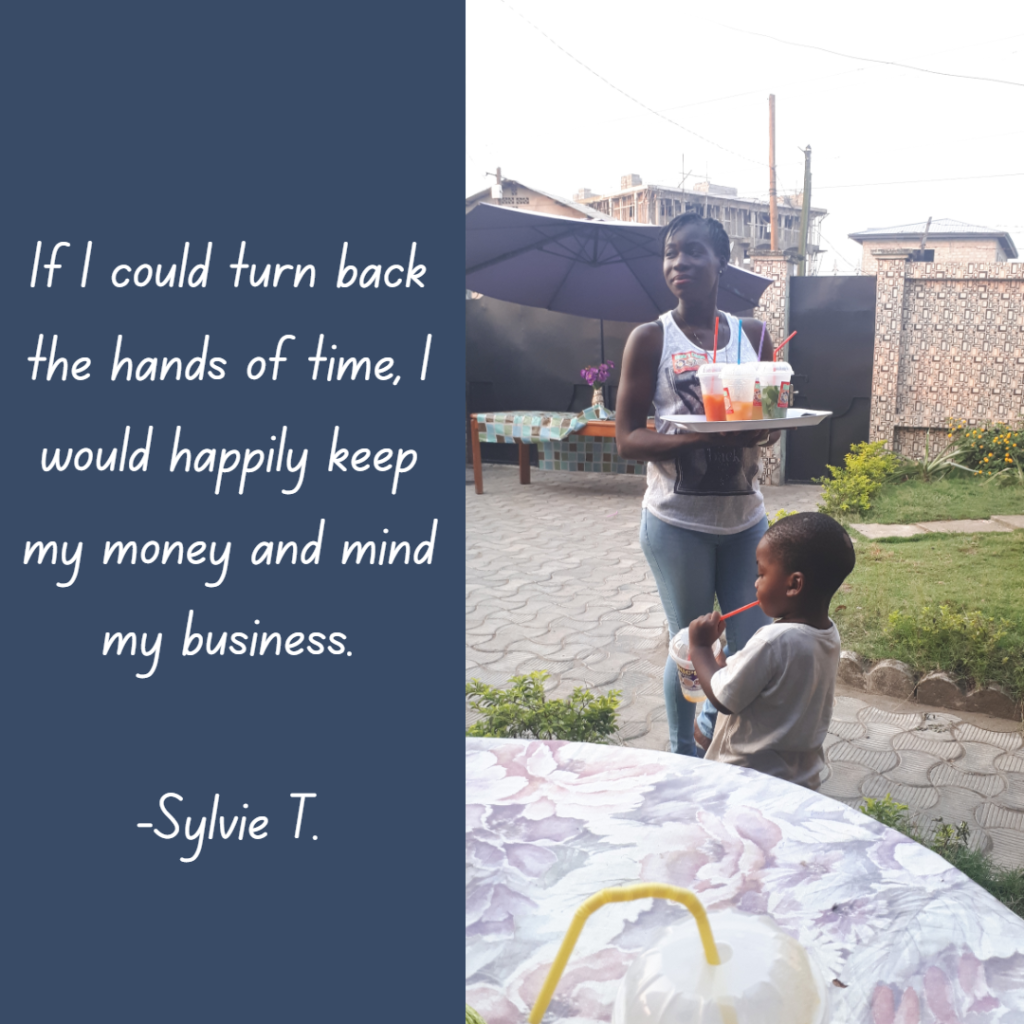
To conclude today’s lesson, before we embark on any action, it is crucial to pause and reflect on the potential consequences. Like seeds planted in fertile soil, our actions have the power to shape our lives and the lives of others.
By mindfully considering the outcomes of our choices, we can foster personal growth, nurture relationships, and align our actions with our values. Let us be mindful gardeners of our actions, carefully planting seeds that bear fruits of purpose, fulfilment, and positive transformation.
Lesson 1: Embrace Independence: No One Will Be in Your Life Forever
Lesson 2: The Impact of an Absent Father: Nurturing Awareness and Sensitivity
Lesson 3: The Power of Resilience: Your Response to Adversity Makes or Breaks You
Lesson 4: Navigating Relationships: The Art Of Dealing With Manipulative Family and Friends
Lesson 5: Embracing the Reality of Family Disloyalty and Lack Of Support
Lesson 6: Embrace Healthy Scepticism: Trust, but verify.
Lesson 7: Ignorance is NOT Bliss: The Importance of Education for Personal Safety and Well-being
Lesson 8: Harnessing the Power of Influence: Guarding your ears and your heart